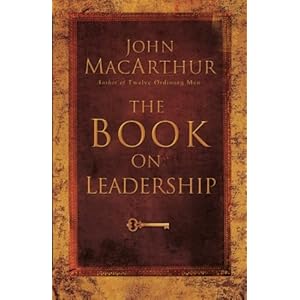Angelina Jolie released a movie called Unbroken in 2014 about the life and legacy of her neighbor and friend Louis Zamperini. Although an Olympic athlete in the 1936 games, when World War II broke out, Zamperini enlisted in the military. After his plane crashed in the Pacific, he survived an incredible 47 days adrift in a raft, until he was captured by the Japanese navy. Sent to a POW camp, Louie became the favorite target of a particularly cruel prison commander, but lived through the treacherous ordeal to die another day in his home country, at the full age of 97. I’ve seen the film, had lengthy discussions with friends who have studied his life further elsewhere and find myself drawn to his story. Something about seeing leadership principles, courage, and perseverance played out in someones life is particularly compelling. No formal lessons have to be taught, and no classes need to be formed to postulate leadership paradigms and axioms, because the undeniable evidence of a life’s work is there for all to see.
Similarly, this is where the strengths of John MacArthur’s The Book on Leadership lie. He tells the story of the Apostle Paul, not quite as a narrative, but certainly in a methodological and systematic manner that follows the timeline of Paul’s life and ministry. While the book does a respectable job of introducing principles of leadership, I found its primary value in serving as a commentary on portions of the books of Acts and Corinthians. MacArthur is a skilled expositor and does deep research in the Scriptures, and that is evident in this book.
MacArthur opens the book by setting the scene for Paul as a Roman prisoner. “When the journey to Rome began, Paul was clearly the low man on the totem pole. He had no authority. He had no responsibility. He had no rights. As a prisoner, he was at the bottom, both physically and socially.”I like this distinction, because for most readers to pick up a book titled The Book on Leadership and choose to read it, I suspect very few of them anticipate their own leadership journey to start at the very bottom. In a world and culture where myself and my generation have become known for their sense of entitlement, elaborating on the Apostle Paul, one of the greatest leaders in history starts at ground zero. A man with no responsibility.
After surviving and courageously taking charge under tremendous pressures while a prisoner at sea, MacArthur transitions the story as well as the focus of the book towards Paul’s interactions and correspondence with the early Church(s). The author labels different leadership principles along the way, but Leadership Principle #12: A leader keeps a good conscience is one that he defends particularly well. “The conscience is a built in warning system that signals us when something we have done is wrong. The conscience is to our souls what pain sensors are to our bodies: it inflicts distress, in the form of guilt whenever we violate what our heart tells us is right.”
Paul assured the Corinthians that his own conscience was clear. He had not lied to them, spoken out of both sides of his mouth, or misled them. When I think of leaders in politics, leaders in the military, or leaders in our churches I wonder how many of them would be able to say that they have a clear conscience? That they have not lived in the grey area on any situation, or done anything other than shoot straight with their people. I know in my own life that there have been numerous times that I had to go back and undo a wrong in order to keep a good conscience. While painful to do, this principle was a good reminder that it is a necessity.
In the last section of the book, MacArthur spends some time discussing ways for a leader to exercise sustainability and keep himself in leadership for the long haul.This is a weaker section of the book because it loses its direct connection to Paul’s narrative and sprinkles in many other leadership truths from other characters in Scripture. The main focus I believe is intended to be about Paul’s mentor-ship of Timothy but at this point I began to lose focus, because it seemed to lack the uniqueness of the rest of the book and sound like many other leadership books.
Overall, the value of this book comes from its use of Scripture as a supporting document. It gives power and authority to all 26 Characteristics of a True Leader because we see them lived out in the life of the Apostle Paul. As I stated earlier, a life lived out in front of all to see is the most compelling way display evidence for what you believe in. I pray that my life could be such a testament.









0 comments:
Post a Comment